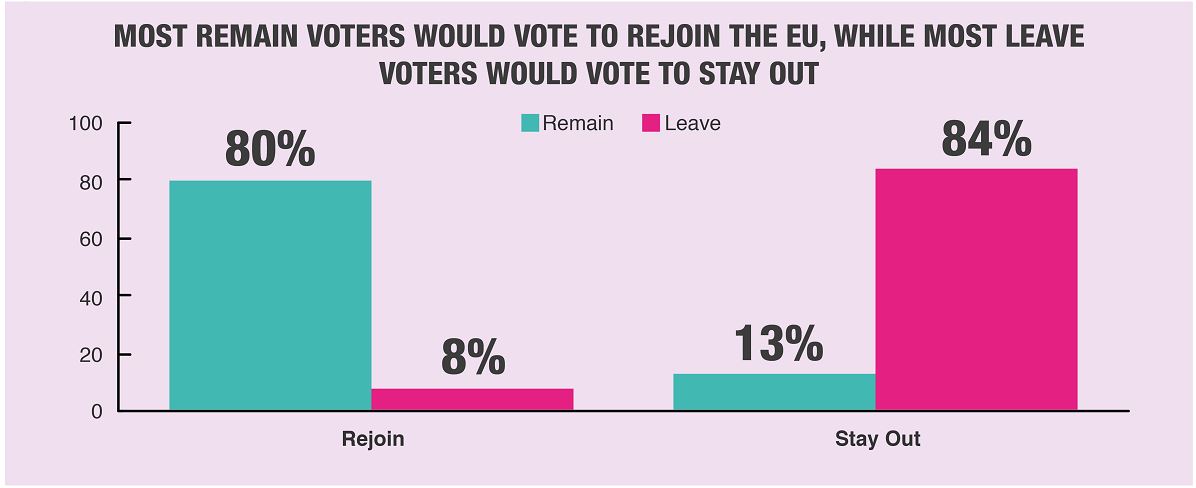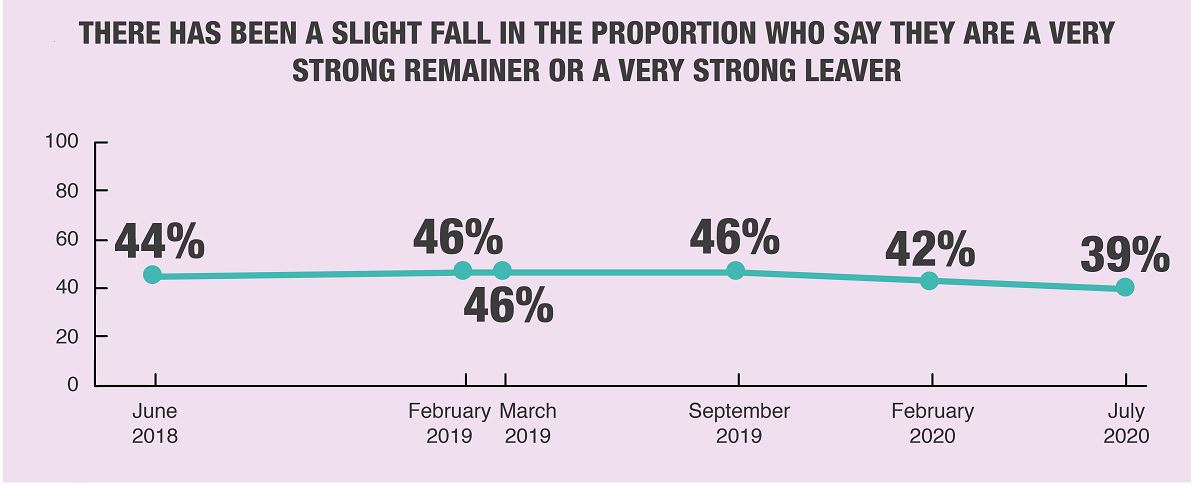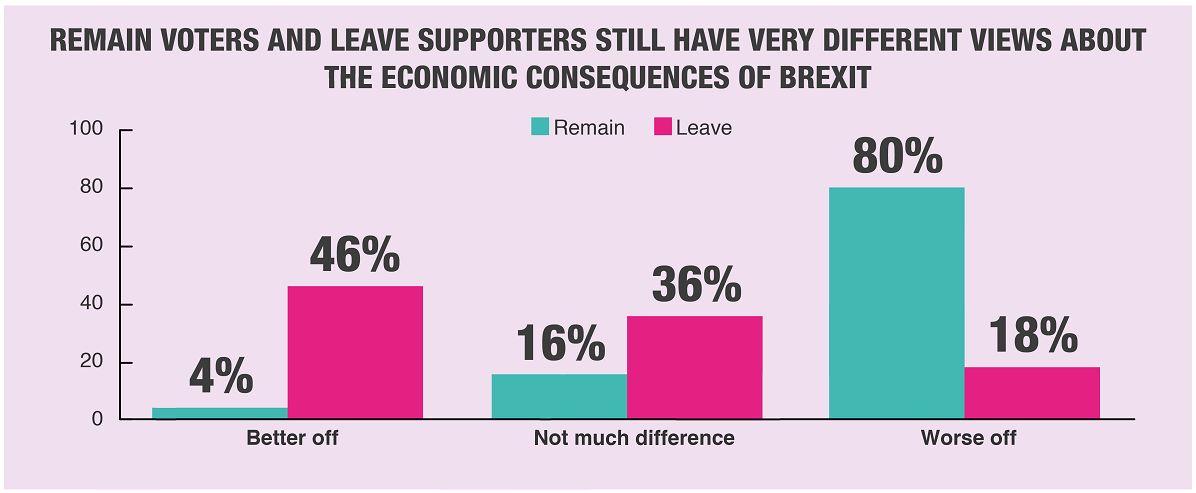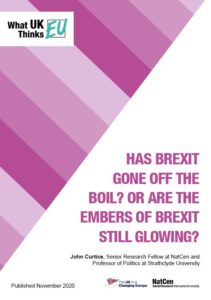Following the Conservatives’ success in winning the December 2019 general election, the UK left the European Union at the end of January 2020. The country is now scheduled to exit the single market and the customs union at the end of this year, by which point it is intended that an agreement will have been reached on their future relationship, and especially so in respect of trade. Meanwhile, the country’s attention is now focused on the management of the most significant public health crisis in a century. Brexit might once have stirred a firestorm of
impassioned debate and parliamentary manoeuvre, but it would seem that the die is now cast and that the embers of the controversy have cooled rapidly. By the time the country goes to the polls again in 2024 perhaps only the ashes will be left.
In this paper, we assess the accuracy of this portrayal of public attitudes towards Brexit as
the transition period comes to an end. It is divided into four parts. First of all, we ask whether
there is any evidence that those who voted Remain in 2016 have begun to change their minds
and have now come to accept the idea that the UK should be outside the EU. Second, we
examine whether there are signs that the passion and emotion that were widely in evidence
on both sides during the Brexit debate have begun to dissipate – are we no longer a country of
‘Remainers’ and ‘Leavers’? Third, does it appear to be the case that the disagreements between
the two groups of voters over what Brexit will and should bring have begun to fade? Is there any
prospect of some degree of consensus emerging over Britain’s future relationship with the EU?
Finally, we present updated evidence on the link between people’s views about Brexit and their
party preference and the implications of our findings for the party political battle.
Key findings:



Read the full report: Has Brexit gone off the boil? Or are the embers of Brexit still glowing?
Download the complete tables: Has Brexit gone off the boil? – Appendix.



